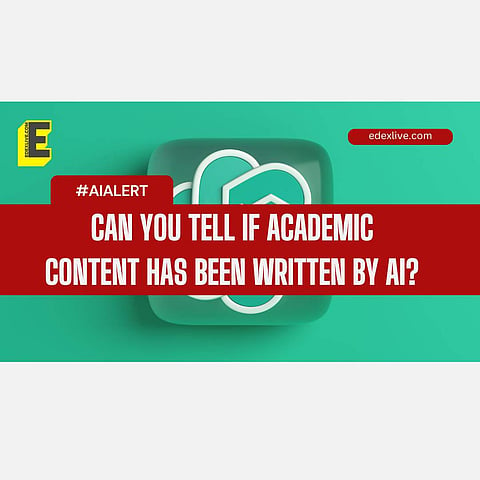

Despite the sophistication of academic content generated by ChatGPT, it is still formulaic in nature and can be easily detected by existing AI-powered plagiarism detection tools, according to a recent study. The study, conducted by researchers from Plymouth Marjon University and the University of Plymouth in the UK, serves as a wake-up call for academic staff to develop strategies that can reduce academic dishonesty among students, as per a report by PTI.
The potential of ChatGPT, a Large Language Model (LLM), to revolutionise research and education has raised concerns in the education sector about academic integrity and plagiarism. To investigate these concerns, this study prompted ChatGPT to generate content in an academic style using a set of prompts and questions.
Some of these included "Write an original academic paper, with references, describing the implications of GPT-3 for assessment in higher education", "How can academics prevent students plagiarising using GPT-3" and "Produce several witty and intelligent titles for an academic research paper on the challenges universities face in ChatGPT and plagiarism", the study said as reported by PTI.
ChatGPT, a Large Language Model (LLM) known for its potential to transform research and education, has raised concerns about academic integrity and plagiarism in the education sector. In response, this study prompted ChatGPT to generate content in an academic style using a set of prompts and questions to mitigate these concerns. Some of these included "Write an original academic paper, with references, describing the implications of GPT-3 for assessment in higher education", "How can academics prevent students plagiarising using GPT-3" and "Produce several witty and intelligent titles for an academic research paper on the challenges universities face in ChatGPT and plagiarism", the study said.
According to a study published in the journal Innovations in Education and Teaching International, the text generated by ChatGPT was organised in a manuscript, following the structure suggested by the software. Genuine references were subsequently inserted throughout the manuscript. This process was disclosed to readers only in the discussion section of the academic paper, which was written directly by the researchers without the involvement of the software. ChatGPT is a new chatbot and artificial intelligence platform launched in November 2022 that is expected to create new opportunities in the field of academics stated in the PTI report.
However, as it grows more advanced, it poses significant challenges for the academic community.
"This latest AI development obviously brings huge challenges for universities, not least in testing student knowledge and teaching writing skills but looking positively it is an opportunity for us to rethink what we want students to learn and why. I'd like to think that AI would enable us to automate some of the more administrative tasks academics do, allowing more time to be spent working with the student. Banning ChatGPT, as was done within New York schools, can only be a short-term solution while we think how to address the issues." said the study's lead author Debby Cotton, professor at Plymouth Marjon University.
AI is already widely accessible to students outside their institutions, and companies like Microsoft and Google are rapidly incorporating it into search engines and office suites.
"The chat (sic) is already out of the bag, and the challenge for universities will be to adapt to a paradigm where the use of AI is the expected norm," said corresponding author Peter Cotton, associate professor at the University of Plymouth as reported by PTI.
